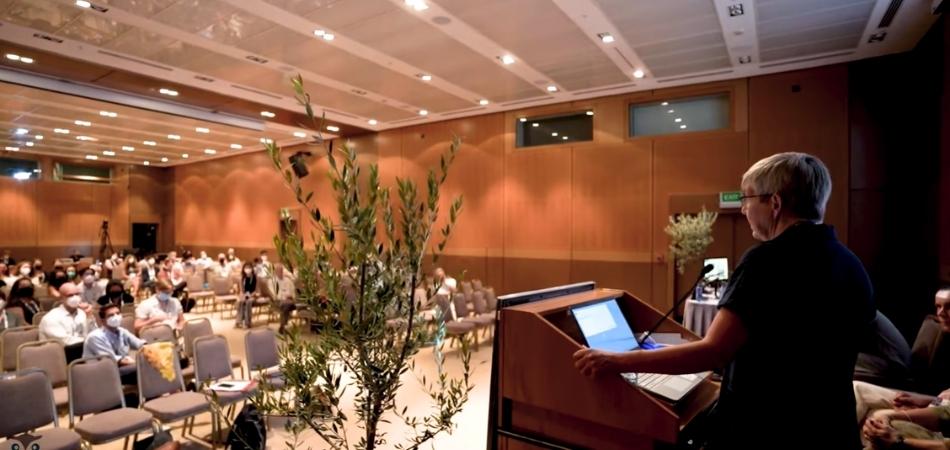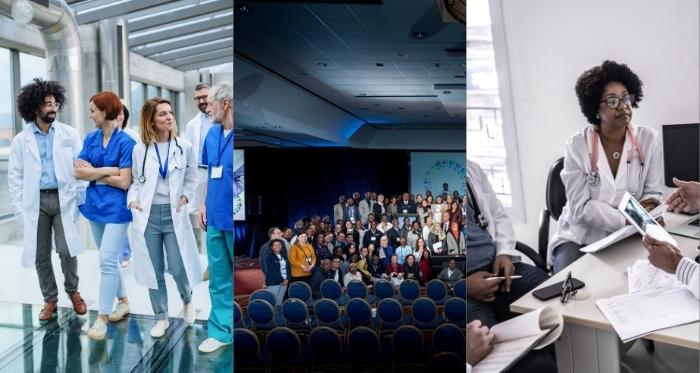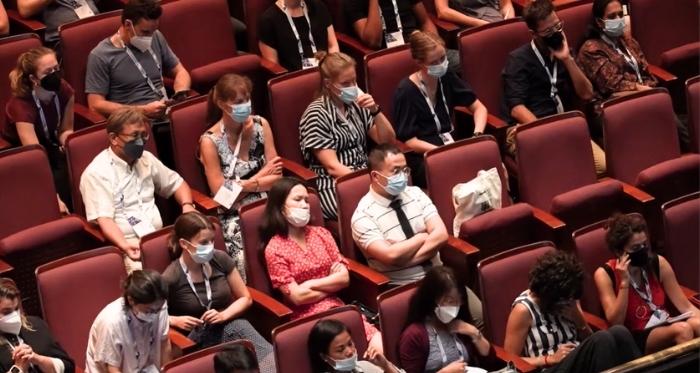Staying updated with the latest insights is crucial in the rapidly evolving world of health and medicine. Amidst this landscape, conferences play a pivotal role in disseminating knowledge.
So, what is an epidemiology conference?
Simply put, it’s a specialized gathering where the brightest minds converge to delve deep into the study of disease distribution and its determinants in populations. Attendees get an invaluable opportunity to discuss, learn, and share the most recent research, findings, and trends.
Such conferences act as a bridge, connecting experts from around the globe and ensuring that critical data and methodologies are shared and debated. Dive in as we explore the significance and intricate details of these pivotal meetings.
What Does it Mean by Epidemiology?
The study of health and disease patterns in populations is a complex yet crucial discipline. Epidemiology, at its core, delves deep into these intricacies, offering vital insights. It plays an indispensable role in public health decision-making.
Epidemiology primarily examines how diseases spread and their root causes. By understanding these patterns, professionals can devise strategies to combat health threats. This field provides the foundation for interventions and policy-making in public health.
What is an Epidemiology Conference?
In the intricate realm of health and medicine, the need for collaborative spaces where experts can share and dissect knowledge is paramount. Epidemiology conferences a part of the Nursing and Healthcare Management conference by Global Conference serve as these crucibles of information, bridging the gap between groundbreaking research and its practical applications. These gatherings are not just academic forums; they’re the beating heart of public health evolution.
At their core, epidemiology conferences aim to unravel the complex web of disease distribution across different populations. By providing a platform for discussions on the latest findings, they illuminate the factors leading to the spread of diseases. But their significance doesn’t end there.
These conferences also delve into the socio-economic and environmental determinants that influence health outcomes. Every shared insight every debated hypothesis, adds another layer to our understanding of diseases and how they impact societies.
Beyond the research before presentations and expert-led panels, these conferences often foster a culture of collaboration. Researchers from diverse backgrounds and geographies come together, forming partnerships that might lead to the next big breakthrough in the field.
Furthermore, these conferences guide public health policies. Decision-makers often attend, looking for data and expert opinions to shape health interventions, ensuring they are evidence-based and effective.
Featured Events of an Epidemiology Conference
Epidemiology conferences are not just talks and presentations; they’re a blend of diverse events that foster learning and collaboration. From expert-led panels to hands-on workshops, each event is tailored to enrich attendees’ knowledge. Here are some of the standout features of these conferences:
- Keynote Addresses: Renowned experts share their latest research findings. These speeches set the tone and theme for the entire conference.
- Panel Discussions: Several specialists discuss current challenges in epidemiology. This format promotes diverse perspectives and encourages debate.
- Workshops: Practical sessions allow attendees to acquire new skills. They provide hands-on experience, bridging theory with real-world application.
- Poster Sessions: Researchers display their studies on posters for attendees to view. This visual format fosters interactive discussions and feedback.
- Networking Events: Professionals connect, fostering potential collaborations. Such events often lead to research partnerships or knowledge exchange.
- Round Table Discussions: Small groups deliberate on specific epidemiological topics. These intimate settings allow for deep dives and brainstorming.
- Tech Demos: Companies showcase the latest technologies and tools. Attendees can explore how these innovations can aid their research.
The diversity of events at an epidemiology conference ensures a holistic experience. From absorbing new information to forming connections, every attendee has something invaluable to gain.
Different Types of Epidemiology Conferences
Epidemiology conferences are multifaceted, catering to diverse niches within the field. Each type aims at a specific audience, focusing on unique aspects of epidemiology. Let’s delve into some of the most prominent types:
Infectious Disease Epidemiology Conferences
These forums focus on contagious illnesses, their patterns, and control measures. They address challenges posed by viruses, bacteria, and other pathogens. Strategies to combat outbreaks and pandemics often dominate the discussions.
Chronic Disease Epidemiology Conferences
Shifting the lens to long-term ailments, these conferences target diseases like diabetes or heart conditions. They explore lifestyle factors, genetics, and preventive measures. Interventions and management techniques are frequently discussed topics.
Environmental Epidemiology Conferences
Here, the emphasis is on how surroundings influence health. Discussions revolve around pollutants, occupational hazards, and other environmental risks. The goal is to understand disease patterns related to environmental exposures.
Genetic and Molecular Epidemiology Conferences
Diving into the genetic aspects, these conferences explore how genes influence disease risks. They connect genetic variations with specific illnesses, aiming to predict and prevent them. Advanced technologies like gene sequencing often get spotlighted.
Pharmacoepidemiology Conferences
Drug safety and its effects on populations are the focal points here. These meetings analyze the benefits and risks of medications. They aim to ensure that drugs are effective, safe, and accessible.
The various types of epidemiology conferences cater to the vast dimensions of this discipline. From understanding genetic factors to addressing environmental concerns, these gatherings help shape the future of public health.
Who Should Attend an Epidemiology Conference?
Epidemiology conferences, with their diverse events and topics, cater to a wide array of professionals in the health sector. The range of attendees is vast, each bringing a unique perspective and expertise. Let’s examine the key players who can benefit from these gatherings:
Epidemiologists
For professionals specializing in the study of diseases within populations, such conferences are indispensable. They offer a platform to showcase their research, receive feedback, and refine methodologies.
Moreover, with the constant evolution in the field, staying updated is crucial. Conferences present the latest trends, tools, and technologies, ensuring epidemiologists remain at the forefront of research advancements.
Public Health Officials
Public health strategies often hinge on epidemiological findings. For officials in public health departments, understanding these findings is paramount to formulating effective interventions and health campaigns.
Beyond the data, these conferences offer a holistic view of global health challenges. Understanding the bigger picture helps these officials develop programs that are culturally sensitive, region-specific, and tailored to unique population needs.
Medical Professionals
The day-to-day practitioners in hospitals and clinics directly engage with the outcomes of epidemiological studies. For doctors, nurses, and other healthcare providers, knowing the prevalence, risk factors, and prevention strategies of diseases enhances patient care.
Furthermore, as frontline responders, they’re often the first to witness emerging health trends. Engaging with epidemiologists can provide them with a deeper understanding, leading to better diagnostics, treatment, and even early containment of potential outbreaks.
Healthcare Researchers
Epidemiology is an interdisciplinary field. Researchers from areas such as virology, genetics, or environmental sciences can find valuable intersections with epidemiological studies.
By attending, these professionals can weave epidemiological data into their research, leading to comprehensive findings. Collaborative opportunities also abound, allowing for joint studies that tackle health issues from multiple angles.
Policy Makers and Advocates
Decisions regarding healthcare funding, infrastructure development, or community outreach need a foundation of solid evidence. Epidemiology conferences provide this in abundance.
For those advocating for health reforms or driving health-related campaigns, understanding the intricacies of disease distribution is crucial. It helps them tailor their messages, lobby for relevant causes, and draft policies that resonate with the ground realities.
An epidemiology conference is a melting pot of expertise and insights. Regardless of their specific profession, attendees leave with enriched knowledge, better equipped to advance the health of the populations they serve.
Benefits of Attending an Epidemiology Conference
Epidemiology conferences are a nexus of learning, networking, and growth for professionals in the health sector. These gatherings offer a plethora of benefits, from enhancing one’s knowledge base to fostering collaborative efforts. Let’s unpack the myriad advantages of attending such an event.
Exposure to Current Research
In the fast-evolving field of epidemiology, staying updated is paramount. Attending a conference allows direct access to groundbreaking research, methodologies, and tools. By absorbing these insights, professionals can adapt their practices, ensuring they align with the latest advancements and best practices.
Networking Opportunities
Such gatherings are magnets for global experts, budding researchers, and public health officials. This mix offers a ripe opportunity to connect, collaborate, and even mentor or be mentored. The relationships formed here can pave the way for joint research projects, funding opportunities, and long-term professional partnerships.
Skill Enhancement Workshops
Beyond traditional presentations, the practical sessions in conferences stand out. Tailored workshops led by experts offer hands-on experiences, from new data analysis techniques to the use of advanced research tools. These skill-building sessions can significantly elevate one’s research caliber and efficiency.
Holistic Perspective Building
Diverse participation ensures a myriad of views on pressing epidemiological issues. Engaging in discussions with peers from varied backgrounds—whether geographic, academic, or experiential—enriches one’s worldview. This holistic understanding aids in crafting research that’s more inclusive and resonates across different population segments.
Influence and Advocacy
Conferences aren’t just passive listening experiences. They offer a platform to voice opinions, share innovative solutions, and advocate for vital public health causes. With policymakers and influential professionals often in attendance, one’s work can directly inform decisions, policies, and interventions at various scales.
An epidemiology conference, with its blend of learning, networking, and advocacy opportunities, is a treasure trove for professionals. Attendees depart with not just enriched knowledge but with connections and experiences that can shape their careers and the broader field of public health.
Bottom Lines
Epidemiology conferences are pivotal forums where knowledge, insights, and innovations converge, enriching the field of health and medicine. As explored above, attending such an event offers invaluable exposure, skill enhancement, and networking opportunities, all of which shape the broader landscape of public health.
The question, “What is an epidemiology conference?” goes beyond a mere academic gathering. It represents a dynamic ecosystem where research meets practice, theories are challenged, and collaborations are forged. These conferences, in essence, are catalysts for progress, driving forward-thinking interventions and informing public health decisions.
For anyone in the health sector, understanding and leveraging the power of these conferences is crucial for both professional growth and the betterment of global health.








